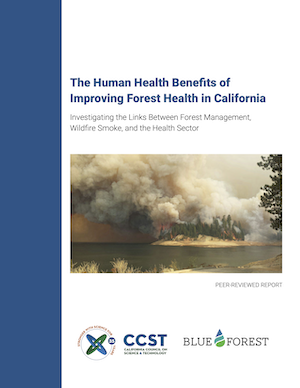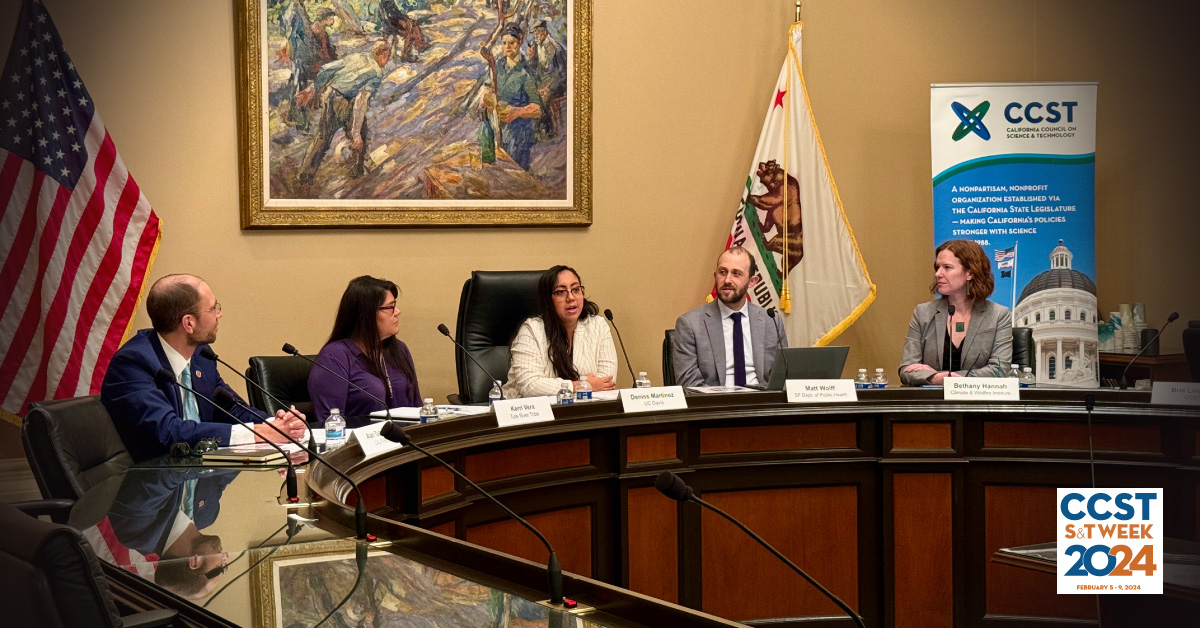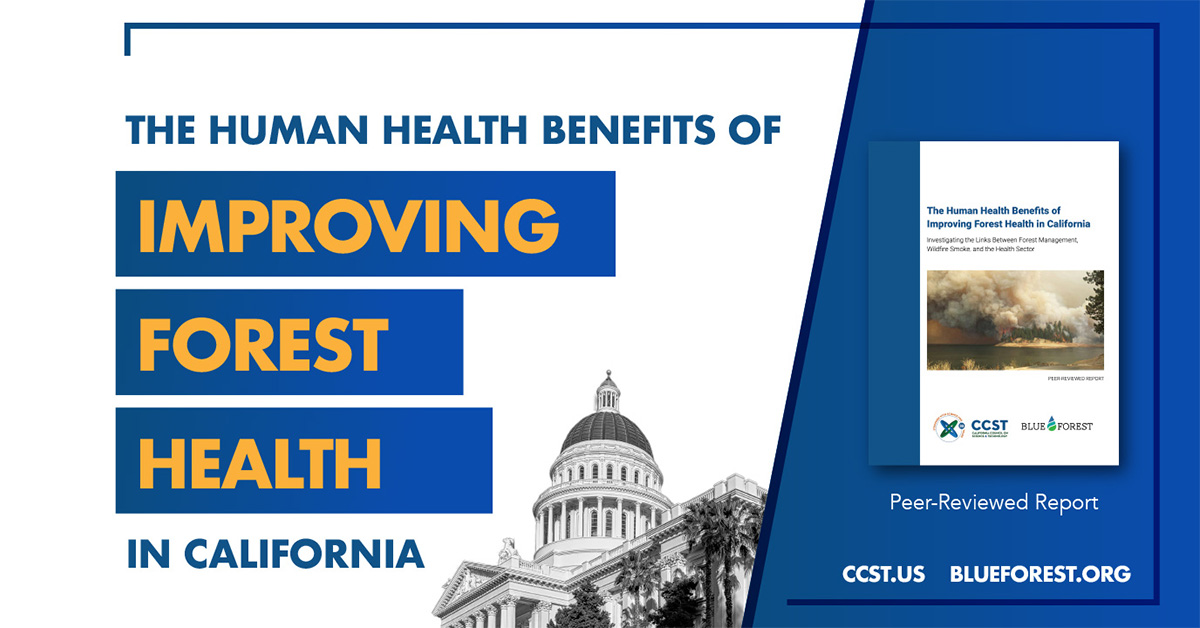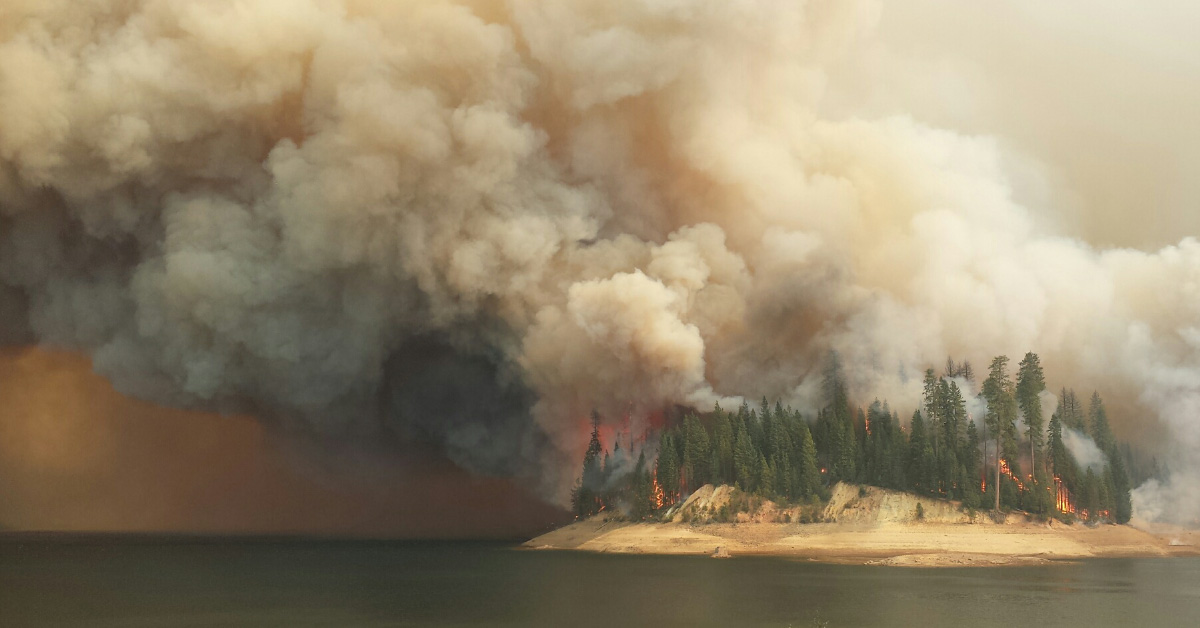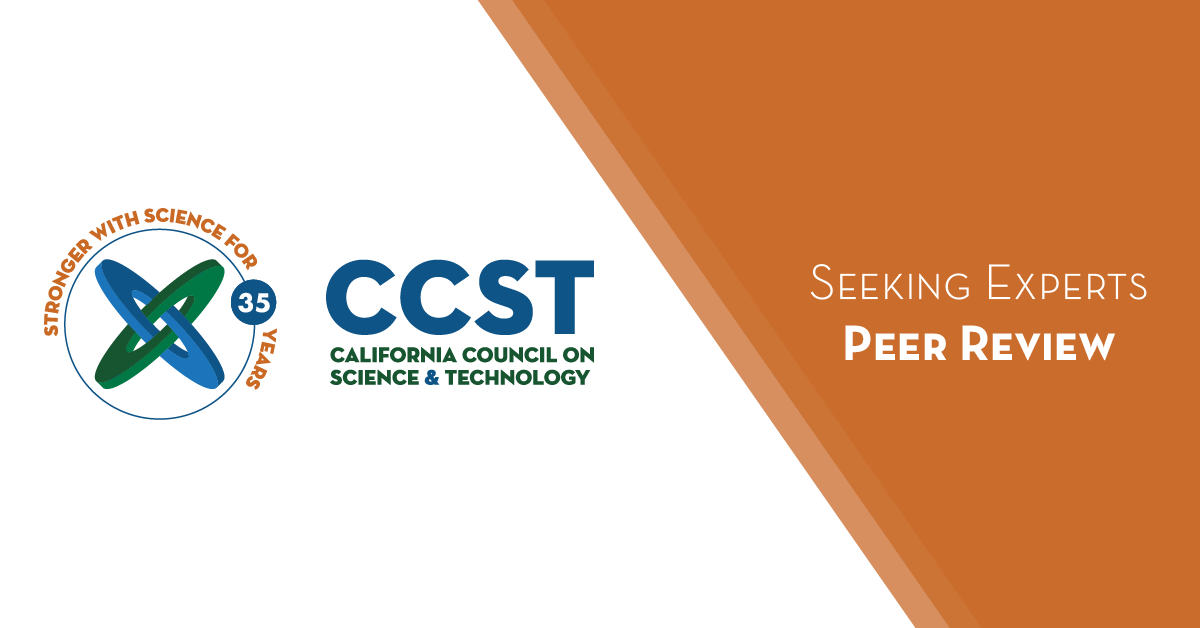CCST Project
The Human Health Benefits of Improving Forest Health in California
Overview
The public health impacts of wildfire smoke are a severely under-represented and under-quantified impact of recent catastrophic wildfires. The economic impacts of wildfire smoke to public and private health systems cost billions of dollars and disproportionately impact disadvantaged communities. This study from CCST and Blue Forest shows that improving the health of California's forests can not only reduce the risk of wildfire, it can also benefit people's health. There may even be an opportunity for the health sector to be part of the forest restoration solution. In a future where smoke is inevitable, better collaboration among federal, state, and local agencies with interested healthcare partners is a pathway to building healthier forests and communities.

This project is in partnership with Blue Forest. The study was supported by a grant entitled "Linking Public & Forest Health: Developing a Cost Benefit Model to Reduce Wildfire Smoke Impacts with Forest Management" from the Innovative Finance for National Forests (IFNF) program, which is co-managed by the U.S. Department of Agriculture, Forest Service, and U.S. Endowment for Forestry and Communities. Additional funding to CCST was provided as part of CCST's Disaster Resilience Initiative, which is supported by an allocation of one-time funds from the State of California to accelerate the transmission of information between science and technology experts and policymakers to increase California's resilience to ongoing, complex, and intersecting disasters. Additional funding to Blue Forest was provided by the J.M. Kaplan Fund and Alumbra Innovations Foundation to support the development of conservation finance efforts that lead to positive impacts and outcomes.
Updates and Notes
Sept. 20, 2023
Changes for clarity were made to the discussion of U.S. EPA (2021) to ensure a more accurate and nuanced summary of the CAIF report results in Table 12 and on pages 109-110.

